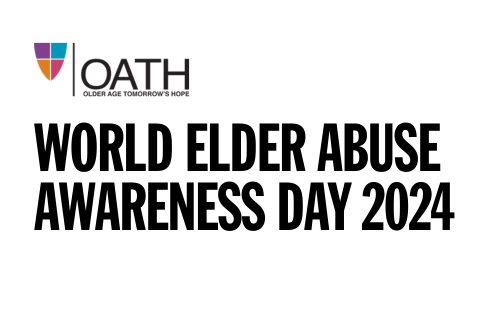
Human rights do not expire after a certain number of birthdays.
Today is the 18th World Elder Abuse Awareness Day. This day is recognised by the United Nations General Assembly in its resolution A/RES/66/127 adopted in 2011 as the official day to raise awareness of abuse and neglect of older people. The focus of WEAAD 2024 is human rights.
The United Nations 1948 Declaration of Human Rights, Article 1 states:
All human beings are born free and equal in dignity and rights. They are endowed with reason and conscience and should act towards one another in a spirit of brotherhood.[1]
Nowhere in this, or the other 29 articles of this declaration does it say that human rights will expire after a person reaches a certain age.
The Equality Act 2010 goes further in explicitly making age discrimination illegal in England, Wales, and Scotland, unless an employer or service provider can show that they have a good reason for discriminating based on age. This is not the case in Northern Ireland, where protection for older people against age discrimination when accessing goods, facilities, and services is currently not provided for in law.[2]
Sadly, 75 years after the Declaration of Human Rights was ratified, we know too often these rights are not upheld throughout the world. The UK has historically prided itself on being a leader in human rights and following the rule of law. Whilst in theory, the Equality Act (which covers three of the four UK nations) protects against age discrimination, its occurrence is still widespread.
During the COVID-19 pandemic, the human rights of older people were not upheld. Older people were discharged from hospitals into care homes without being tested for coronavirus. The virus spread rapidly in an environment where neither care home staff nor residents had access to PPE. Do not resuscitate notices were being issued for people in care without the consent of the person and without discussions with their families.
In October 2020 Amnesty International issued a report titled “As if expendable: The UK government’s failure to protect older people in care homes during the COVID-19 pandemic”. This report claimed the following:
The UK government, national agencies, and local-level bodies have taken decisions and adopted policies during the COVID-19 pandemic that have directly violated the human rights of older residents of care homes in England—notably their right to life, their right to health, and their right to non-discrimination.[3]
Older people’s human rights being violated is sadly not something limited to the pandemic. The reality is that older people’s rights are regularly not upheld or are considered secondary to those of younger people. This is glaringly obvious when it comes to domestic abuse. When the Domestic Abuse Act was going through the House of Commons, abuse of older people was not mentioned once. Further, when the issue was raised, the response from the government was that generic abuse services would be sufficient for older people, despite considerable evidence that there are significant barriers to older people using abuse services that do not have any experience supporting older people.
For WEAAD 2024, Hourglass have launched OATH – Older Age, Tomorrow’s Hope. We are calling on people to sign the OATH and commit to seeing a Safer Ageing Society in England, Northern Ireland, Scotland and Wales by 2050. There are over two and a half million reasons why you should take the OATH. Because that’s how many older people suffer abuse, harm, exploitation and neglect in the UK every year. You can show your support and take the OATH here: https://www.wearehourglass.org/take-oath
Building a safer ageing society where people can grow old free from abuse and neglect by 2050 may seem like a long time to wait. Research conducted by Hourglass in 2020 found that over 2.6 million older people were affected by abuse and neglect. Yet in most parts of the UK, local specialist services for older victim-survivors are not available and where they are there are long waiting lists. Older people’s services have not been prioritised by successive governments and still do not have parity with services supporting other demographics.
Ageist attitudes are one of the main barriers to supporting older people. Many people do not see actions like family taking their inheritance early as economic abuse against an older person. The image of domestic violence victim-survivors is invariably a younger woman with children, not an older person. Older people experience the same forms of abuse as younger people, including psychological, sexual, physical or neglect. Yet this is not well understood and often when an older person reports abuse, they are not believed.
We need a societal change where older people’s human rights are no longer considered secondary to younger people. We hope that this can be achieved before 2050, but we have much work to do.
While the target is 2050, the work begins today. This week Hourglass launched its manifesto with key policy asks of Westminster, the Welsh Senedd, Holyrood and Stormont. These policies and actions would lay the foundation for a safer ageing society and would help uphold the human rights of older citizens living in all parts of the UK. Our Manifesto can be viewed here: https://www.wearehourglass.org/hourglass-manifesto-2024
With an ageing population, we must do more to ensure that these universal human rights do not have an expiry date or are eroded after a certain number of birthdays or visible grey hairs. In particular, the right to life, the right to health and the right to non-discrimination that to-date have not been upheld. People have a right to grow older safely free from abuse and neglect. This is the theme of this year’s WEAAD, ensuring that people can grow old free from abuse with their human rights upheld.
 Shop Now
Shop Now